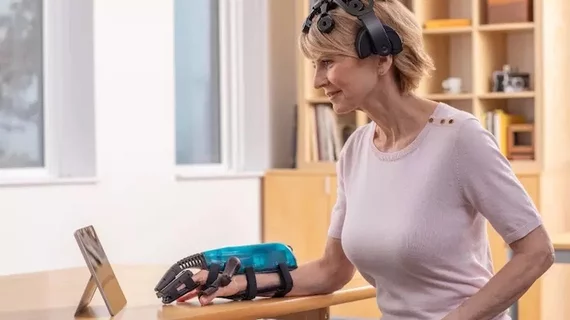Neurolutions, a California-based healthcare technology company, has received authorization from the FDA to market its brain-computer interface designed to boost the rehabilitation of stroke-related hand, wrist and arm injuries.
The IpsiHand Upper Extremity Rehabilitation System uses electroencephalography electrodes to record brain activity and send wireless signals to an electronic hand brace, which can then move the user’s hand. It was specifically developed to help stroke patients recover the ability to grasp and let go of objects.
The device received the FDA’s breakthrough device designation and was reviewed using the agency’s de novo premarket review pathway. The FDA has also indicated it is “establishing special controls for devices of this type,” including labeling and testing requirements.
“Thousands of stroke survivors require rehabilitation each year,” Christopher M. Loftus, MD, acting director of the Office of Neurological and Physical Medicine Devices in the FDA’s Center for Devices and Radiological Health, said in a prepared statement. “Today’s authorization offers certain chronic stroke patients undergoing stroke rehabilitation an additional treatment option to help them move their hands and arms again and fills an unmet need for patients who may not have access to home-based stroke rehabilitation technologies.”
The FDA also noted that this device should not be used by stroke patients with “severe spasticity or rigid contractures in the wrist and/or the fingers” or certain skull defects. This could keep the hand brace or electroencephalography electrodes from being properly positioned.

